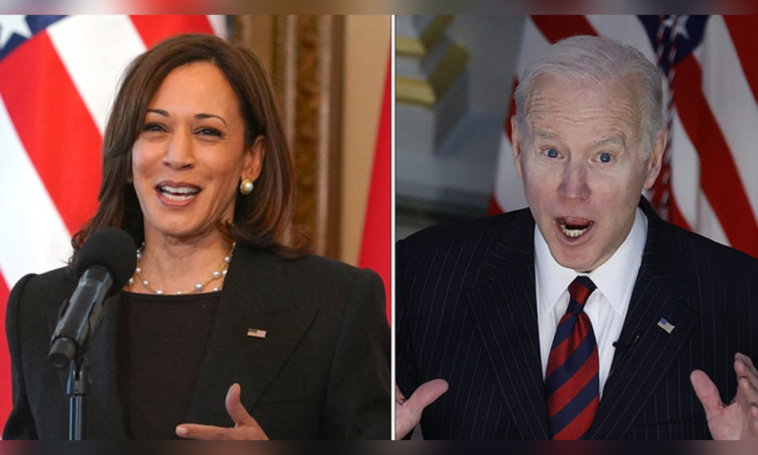Harris at odds with Biden over humanitarian crisis in Gaza
The recent report revealed disagreements between Kamala Harris and Biden concerning the Israel-Hamas conflict.
According to sources familiar with Harris’s sentiments, “she has been advocating for the White House to exhibit greater public concern for the humanitarian situation in Gaza, where Israel is embroiled in a prolonged and bloody battle with Hamas.”
Specifically, three individuals, reported by Politico, have disclosed that Harris desires a more assertive stance towards Israeli Prime Minister Benjamin Netanyahu, expressing a preference for the U.S. to be “tougher” on the Israeli leader.
Additionally, the Vice President is said to be pushing for a more forceful approach in seeking long-term peace and a two-state solution to address the underlying issues contributing to the conflict.
Amidst these reported disagreements, Harris’s press secretary, Kirsten Allen, has vehemently denied any substantial divide in opinion between the Vice President and President Biden regarding the Israel-Hamas war.
In a firm statement, Allen asserted that “there is no daylight between the president and the vice president, nor has there been.” She emphasized key areas of agreement, including the acknowledgment of Israel’s right and responsibility to defend itself, the necessity of allowing humanitarian aid to reach Gaza, the protection of innocent civilians, and the enduring commitment to a two-state solution.
Moreover, Allen cautioned against relying on anonymous sources, particularly when discussing sensitive national security conversations between the president and vice president that take place within the confines of the Oval Office. Her remarks underscored the administration’s commitment to maintaining confidentiality and trust in handling delicate matters of international concern.
Supporting Allen’s position, another senior official within the Biden administration emphasized the alignment between President Biden and Vice President Harris on the Israel-Hamas war.
The official stressed that there was no need for convincing on this matter, as there were no outliers within the administration. This official further stated that the consensus view on key policy priorities related to the conflict has been consistent both in public and private discourse, from the President to his Vice President.
Similarly, a third anonymous official echoed these sentiments, highlighting the unity within the administration since day one. According to this official, President Biden, Vice President Harris, and their advisers have been resolute in their commitment to providing humanitarian aid, protecting civilians, and remaining dedicated to the establishment of a Palestinian state. This unified stance, the official asserted, has not wavered and continues to be the consensus view within the highest echelons of the U.S. government.
The Israel-Hamas conflict has long been a source of tension and contention, with various actors advocating for different approaches to achieve a sustainable and just resolution.
The reported differences between Harris and Biden underscore the complexities inherent in navigating such delicate diplomatic terrain. While public statements emphasize unity, it is not uncommon for diverse perspectives to exist within any administration, providing a nuanced understanding of policy formulation and decision-making processes.
As the administration grapples with these complexities, it remains to be seen how the reported disagreements may influence the U.S. approach to the Israel-Hamas conflict in the days and weeks ahead.




